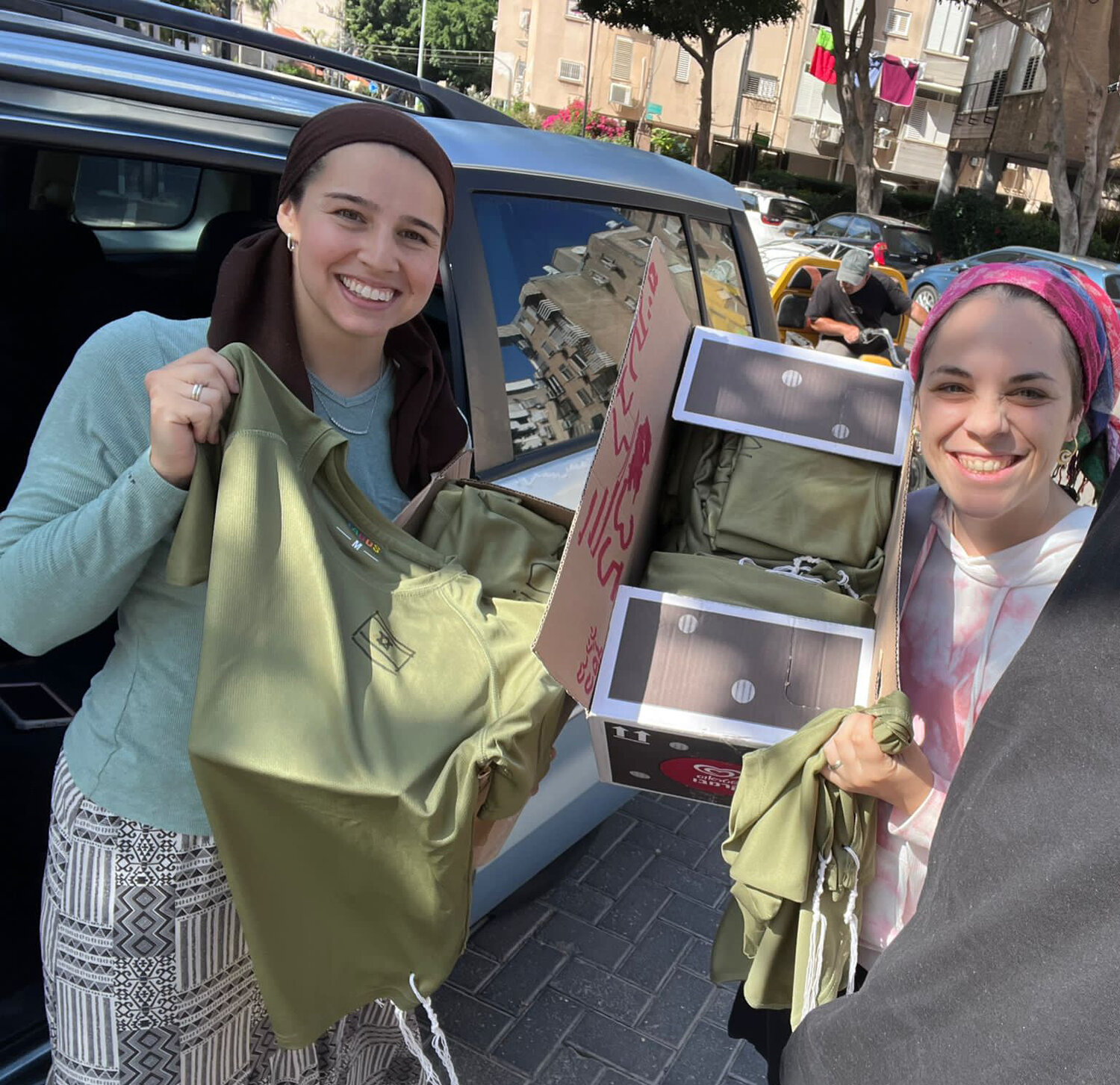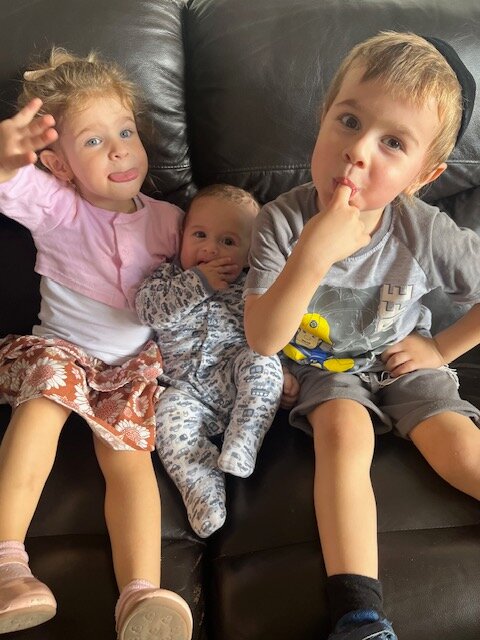Life in Israel: Normal, yet far from normal
JERUSALEM, Oct. 25 – Throughout the night, I fed the baby multiple times. Every time I wake, I’m thankful the kids are asleep and not crying and begging for my husband or me to sleep next to them, a request that has been constant since that first awful night, since Oct. 7.
It’s 6 a.m. and the kids are up. I think to myself how tired I am, how physically and mentally exhausting the day will be. However, my second thought is that my kids are with me. Here. Home. Alive. Safe. We are all together. Time for breakfast.
Two hours later we are off to gan (preschool). My 3-year-old daughter is held by one hand, my 4-year-old son by the other, and my almost 5-month-old baby is in the carrier, snoozing away without a care in the world.
We wait at the bus stop. Although there haven’t been any sirens for some time now, I’m always fully aware of which building we’ll run into should one go off. Hyper-aware of my surroundings, I breathe in and out slowly, one of my coping techniques.
Half an hour later, I’m back at home. The dishes, toys and laundry are all waiting for me. Typical. But nothing about it feels normal. The quiet is soon interrupted by my thoughts. I feel so safe in my home, but how are those poor, innocent children, teens, young adults, older adults, how are they coping with being held hostage? What are they doing? They’re a mere 60 miles away from me.
Or I think of the families that have already sat shivah or will be sitting shivah once their loved ones have been identified. It’s all so heartbreaking. These difficult thoughts haunt me throughout the day, but it’s too much for my mind to handle. I begin the laundry.
The second part of my day consists of the Tzitzyot Project, 20,000 tzitzit made by hand by hundreds and hundreds of volunteers in just 10 days. A number and an operation that is hard to imagine. We are one of three groups in our general area to provide our soldiers with tzitzit, spiritual armor, but also psychological armor as their courage grows when the white strings are on their green army shirts.
Part 3 of my day, it’s 1:30 p.m., and the kids are home. Another normal, and yet not normal, afternoon. My kids have made a new game, which consists of them being the parents, and I’m the child.
“There’s a siren! Quick, we have to go into the hallway, our safe place,” they tell me.
“Can I first make a cup of coffee?” I ask them.
“No, the siren is here, we have to go.”
Fine. I’m tired of playing this game, but I know this is how their young brains process. I go along with it. They tell me it’s OK to be scared, but that we are safe and Hashem is with us.
7 p.m., bedtime! How I’ve been longing for bedtime. We get the kids into pajamas as I hear a loud boom outside. The babysitter and I look at each other. We don’t exchange words, only a quick glance. I know we’re thinking the same thing: it was probably a garbage can outside, right? Or the Iron Dome working a few neighborhoods away. Far enough away that the siren in my neighborhood didn’t go off. I’m not sure, nor does it really matter. We don’t discuss it. We move on.
This is exhausting to write. It’s exhausting to live. But we are living it. All Israelis are living it. Together.
Editor's note: Elanah sends an update that there are currently 50 families who have been relocated to her neighborhood that they continue to place in homes, provide with meals, clothes and basic necessities. She sends a link where you can read stories about the families and donate to the groundbreaking cause if you would like.
ELANAH OBERG, originally from New Jersey, attended the University of Rhode Island and, in her senior year, landed an internship at the Jewish Alliance of Greater Rhode Island. Following graduation in 2013, Elanah began working at the Alliance, managing the Israel Desk and Overseas Allocations. Since getting married in 2016, she has been living in Jerusalem with her husband, and now, their three children.











